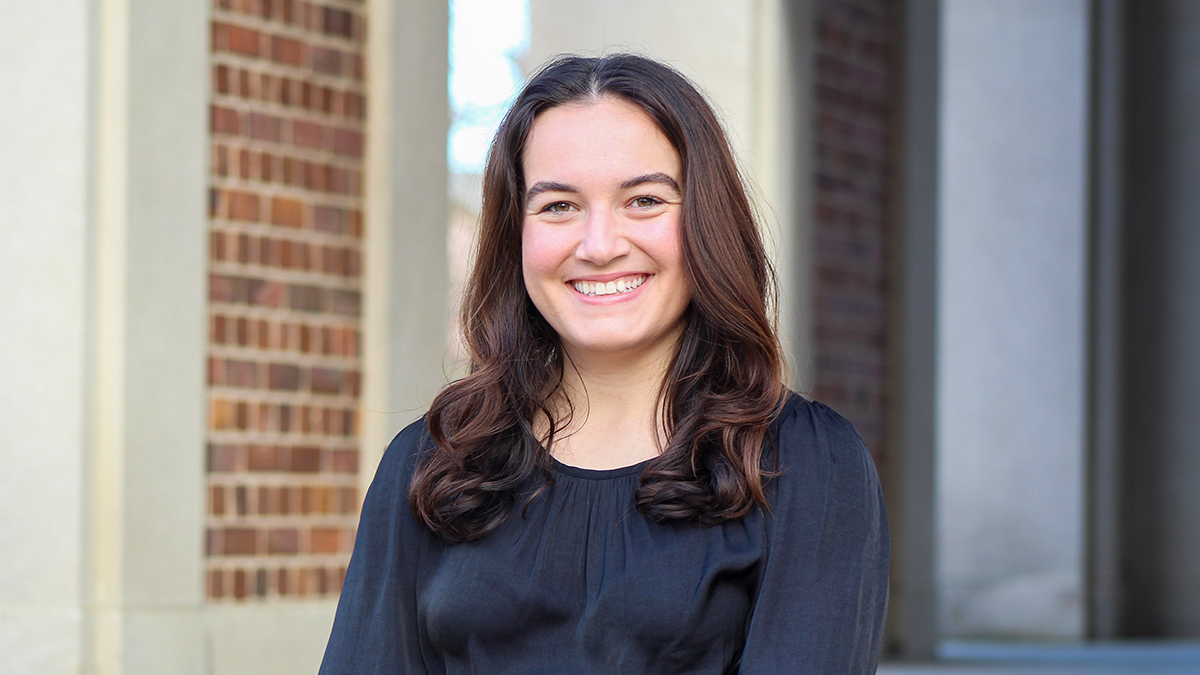UNC TEACCH at 50: A global leader in autism care, training, education and research
Efficient, modern, and breathtaking in its scope, UNC TEACCH celebrates its 50th anniversary as a stellar demonstration of commitment, excellence and collaboration to help individuals with autism and their families across the state and around the world.

“TEACCH is one of the few places in the state you can go if you really want direct experience working with autistic individuals across the spectrum and lifespan. It combines clinical practice, on the ground training, and experience with research.” –Brian Boyd, William C. Friday Distinguished Professor in Education at the University of North Carolina.
At its 50th anniversary celebration and conference this fall, you could see and feel the positive impact UNC TEACCH has had on the community. Hundreds of people from around the world gathered in person and virtually, each of them dedicated to the care of people with autism, the training of autism educators and caregivers, and the research that helps millions.
Its influence now spreads far and wide, but initially, the program was available only in North Carolina, thanks to funding by the state of North Carolina in 1972 to create a regional center approach in providing clinical services, training, and research for individuals with Autism Spectrum Disorder across North Carolina. The TEACCH Autism Program was developed in the mid-1960s by the late Eric Schopler, a professor of psychiatry and psychology at the University of North Carolina at Chapel Hill. Schopler was one of the first to establish that autism was a treatable neurological condition. Previously, parents were blamed for causing what was then held to be a psychological problem. In 1971, Schopler enlisted parents as co-therapists in customized treatments to help children with autism gain critical life skills.
“Today that approach is quite common in the field, but back in mid-60s and early 70s, nobody was doing such things,” said Lee Marcus, who across his 48- year career at Carolina served as the director of the Chapel Hill TEACCH Center. He also recently received the Eric Schopler Lifetime Achievement award at the UNC TEACCH Autism Program Annual Conference this fall.
The vision of TEACCH is to have a world where all individuals with ASD and their families have access to excellent evidence-based services in their home communities. Fast forward to 50 years after it was founded, and the program is doing just that – expanding to seven outpatient clinics across North Carolina and serving all 100 counties in the state in 2021.
“Everything we do is about bringing evidence-based practices to families in their own communities, whether that be research, training professionals, or direct clinical services,” said Laura Klinger, associate professor in the Department of Psychiatry at the UNC School of Medicine and executive director of UNC TEACCH.
Providing services across the lifespan
Back in the early 70s and 80s, a child could be diagnosed with autism as early as age five, though some individuals were diagnosed much later. Now early invention can happen for 18-month-olds and 2-year-olds. And TEACCH doesn’t stop at childhood; the program provides services from infancy to older adults in their 70s and 80s, a big step in the field of autism.
“When autism was first conceptualized, it was called infantile autism and there wasn’t a lot of thought about children as they grew up,” said Klinger. “In the 80s, TEACCH was the leader in the field to bring up the conversation about autistic adults. We’re seeing a lot of individuals who were diagnosed in the late 70s and 80s are now in their 50s and 60s. We are thinking ahead of what programs are needed and what intervention supports are needed for older adults who have autism.”
TEACCH’s clinical services are designed to promote positive behavior, communication, social skills, development, and coping skills. Their programs range from: TEACCH for Toddlers, School-age Social Skills/Emotion Regulation, Transition to Adulthood, and Adult Mental Health. These services are all tailored to meet the unique needs of each individual with ASD and their family – no matter their age. TEACCH provides education and training, such as workshops for parents, teachers, and other professionals focusing on characteristics of autism and intervention strategies. An employment program for autistic individuals is also offered in the Triad and the Triangle, as well as a residential program located in Pittsboro.
As part of the UNC Autism Research Center, researchers at TEACCH are working to figure out which types of interventions work best for each individual across the lifespan. Projects include interventions for toddlers, children, adolescents and adults, as well as adult outcomes research. The program partners with colleagues across UNC-Chapel Hill and the nation to improve knowledge about Autism Spectrum Disorder and, ultimately, the quality of life for individuals with ASD and their families. Brian Boyd, William C. Friday Distinguished Professor in Education at the University of North Carolina, who began his career at TEACCH after graduating from college, is now a leading researcher focused on how to better serve people with autism who are part of marginalized communities.
“Individuals who have been diagnosed with autism are not divorced from living in poverty or experiencing racism or dealing with other things that marginalized and vulnerable groups deal with in this society,” said Boyd. “When you are at the intersection of having a disability but also being a member of another marginalized group, then that can really affect your outcomes. Autism has no racial or ethnic boundaries, and neither should our research studies.”
The intersection of mental health and autism is also a top research priority. Brenna Maddox, assistant professor in the UNC Department of Psychiatry and an implementation scientist for the UNC TEACCH Autism Program, works on how to improve the mental health and quality of life for individuals with autism, with a specific focus on suicide prevention.
“We know that autistic people are at greater risk for suicide, and we also know that interventions designed for non-autistic people may not be a good fit for autistic individuals,” said Maddox. “This means that we need tailored interventions that address the unique needs of autistic individuals at risk for suicide,” she said.
From understanding how underrepresented groups are affected to addressing mental health and suicide prevention, TEACCH has become a reflection in the changes we’re seeing in how to tailor to those who have been diagnosed with autism. Research continues throughout the program to help individuals to live long, meaningful lives. For those transitioning to adulthood, there’s the T-STEP program, a community-college transition to adulthood program that helps individuals become as independent as possible by assisting them in preparing for college and employment.
“Current research shows students enrolled in the T-STEP program are making improvements in their work-readiness skills,” Klinger said. “They are more prepared for work. They’re reporting less anxiety, and they’re reporting more opportunities in making decisions for themselves.”
In older adults with autism, research has shown how cognitive-able individuals reported symptoms of cognitive decline over the years. TEACCH is now making efforts to learn more about what it means to age with autism.
“In one study group, 30 percent reported symptoms of cognitive decline, with the average being 54 years old,” Klinger said. “This is a problem because 30 percent of the world doesn’t experience symptoms of dementia in their mid-50s, but we are seeing that in our autism population.”
Better access to care and adequate support are both essential to improving the outlook for seniors with autism. The effectiveness of research and responding to these issues can really help push the field in the direction it needs to go, according to Klinger, allowing for a better understanding of aging with autism.
The future of TEACCH
As a global leader in autism education, TEACCH provides a variety of training programs locally, nationally, and internationally. These evidence-based practices are available for professionals to learn how to support autistic students in the schools as well as patients in clinics. From educators to psychologists, the program trained 5,600 professionals last year from 46 countries, including professionals from 42 states in the U.S.
“A lot of what we’re doing in our professional development programs is training educators all over the world about how to support students in their classrooms,” said Klinger. “It’s not a curriculum for math, reading or science, it’s more about providing support for the learning differences students with autism have.”
According to the Centers for Disease Control, about 1 in 44 children are diagnosed with ASD, showing there’s a growing need of training community professionals in the field. TEACCH is growing rapidly and changing with the times to better serve individuals with ASD.
“I feel really privileged to have the opportunity to lead an organization that has made such an impact for 50 years,” said Klinger.
“I think one of the fascinating things about TEACCH is how many well-known researchers in the field worked at TEACCH at some point in their career,” said Brian Boyd. “It has really been a breeding ground for training some of the autism researchers who have made an impact.”
Research in aging, effective virtual trainings and workshops, amplifying the voices of autistic individuals, and early intervention for children diagnosed with autism are the top goals for TEACCH. It’s a program that not only delivers responsive practices but appreciates the unique strengths of every individual while emphasizing the importance of continuous lifelong learning.
“It started in 1972 when autism was unknown to now being one of the most recognized conditions that a family can face,” said Lee Marcus. “To know that we’re a part of the changes over the years to assisting families, students, and professionals has been very rewarding.”




